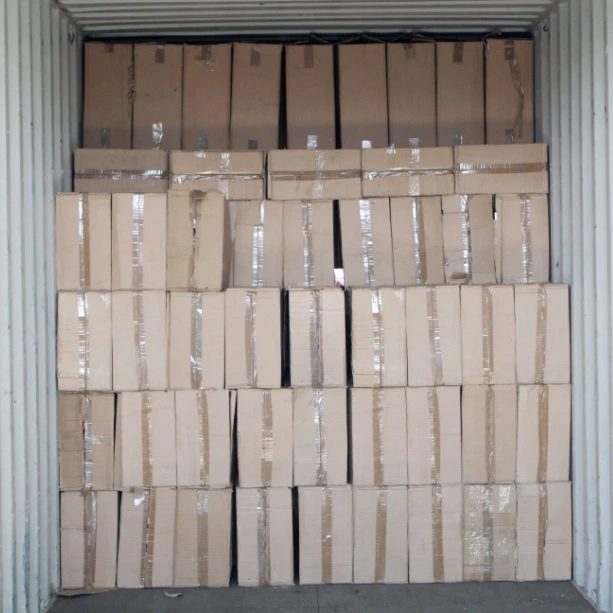“What's in my trailer?” This seemingly simple question extends far beyond mere curiosity; it touches the very heart of supply chain efficiency. We’re living in a digital age where data reigns supreme. This has caused container tracking to emerge as a revolutionary tool that transcends the logistics industry. It offers the power to transform the way companies operate. Even then, container tracking is more than just a tool; it's a catalyst for transformative change. Continue reading as we dissect the advantages and intricacies of container tracking, unlocking the secrets of a more efficient, secure, and transparent supply chain that's primed for the future.
Increase Your ROI by Investing in AirFinder Everywhere
- Loss Prevention. Reduce the amount of loss that occurs during the supply chain process
- Location Coverage. AirFinder Everywhere uses a combination of GPS, Cellular, and WiFi to determine location everywhere
- Security Alerts. Know when a delay in shipment has occurred so the problem
can be addressed immediately.
What is Container Tracking?
Container tracking is a crucial component of global logistics, serving as the digital eyes and ears of the modern supply chain. At its core, container tracking involves the real-time tracking and monitoring of shipping containers as they travel on trailers throughout the supply chain. The primary objective of container tracking is for companies to gain visibility and transparency into the location and condition of these containers throughout their entire journey.
In a world where goods are constantly in motion, container tracking offers a solution to one of the most fundamental challenges in logistics: the need to keep tabs on cargo as it moves through a complex network of distribution centers before ultimately arriving in the customer’s possession. This process begins when cargo is loaded into a shipping container, which is then equipped with trailer tracking devices. These devices transmit real-time data about the container's whereabouts, temperature, humidity, and other relevant information to the fleet manager for review and analysis.
Reasons to Use Container Tracking
Through container tracking, companies can access accurate, real-time location information about the location of their goods, allowing for more informed decision-making and better customer service. Container tracking helps prevent theft and loss, and increase supply chain efficiency.
Theft Prevention
Container tracking plays a pivotal role in preventing theft of cargo. Theft of cargo during transit is a significant concern for companies engaged in logistics operations due to the high reward thieves gain by reselling the stolen goods. A trailer tracking system provides real-time visibility into the location of shipping containers at every step of the supply chain process. By constantly monitoring the container's movements and transmitting this information to fleet managers, companies can quickly detect any unauthorized containers leaving the facility or unauthorized deviations from the planned route. This immediate awareness enables rapid response in the event of theft or suspicious activity. Law enforcement agencies can be alerted promptly, increasing the chances of recovering stolen cargo and apprehending criminals.
Furthermore, trailer tracking software includes a security feature called geofencing. Geofencing allows companies to define virtual boundaries for their containers. If a container moves outside these predefined areas without authorization, an alarm is triggered. The tracking of these containers can deter thieves from stealing the goods and help to ease the recovery process of the stolen goods to prevent extraneous delays.
Loss Prevention
Loss of cargo can occur for various reasons, including misplacement, mishandling, or forgetfulness. The primary way a trailer tracking solution prevents loss is by providing real-time visibility into the container's location. Companies can monitor the precise whereabouts of their cargo as it moves through the supply chain, enabling fleet managers to quickly identify and rectify any discrepancies in movement or separation from the group that occurs. This immediate awareness allows for timely intervention in cases of potential loss, minimizing the chances of cargo going missing or unnoticed.
The geofencing feature mentioned above aids in loss prevention as well. If a container is accidentally loaded onto the incorrect trailer and leaves the facility with the wrong truck, fleet managers are alerted of the error so they can fix the issue immediately.
Asset Utilization
Container tracking plays a pivotal role in optimizing asset utilization within logistics operations, contributing to increased efficiency across the supply chain. Companies often manage a large amount of shipping containers and some can be easily overlooked. Trailer tracking enables improved asset usage and allocation. Companies can track the availability and usage of their containers. This data helps them to efficiently allocate assets where they are needed most, preventing underutilization or overutilization of containers. By ensuring that assets are deployed optimally, companies can reduce idle time, maintenance costs, and the need for additional assets.
Additionally, container tracking aids in asset maintenance and condition monitoring. Sensors within tracking devices can detect issues or wear and tear on containers. This proactive approach allows for timely maintenance and repairs, reducing the risk of breakdowns and unexpected downtime. Well-maintained assets are more reliable and contribute to improved overall efficiency.
Compliance
Compliance regulations are essential for ensuring the safe movement of perishable goods. Compliance with industry-specific regulations is a complex and critical aspect of logistics operations, and a container tracker offers valuable tools to facilitate adherence. Many rules under the FDA FSMA regulation require detailed records of cargo transport, including departure and arrival times, routes taken, and handling conditions. Container tracking systems automatically generate these records, reducing the risk of human error and ensuring that the necessary documentation is readily available for regulatory authorities. Perishable assets must remain at specific temperature to prevent spoilage and the sickness that follows. Container tracking devices, such as our AirFinder have embedded sensors that monitor the temperature of the cargo throughout the supply chain. If the safe range is breached, fleet managers are notified so action can be taken before spoilage occurs.
Accountability
Container tracking technology is a valuable tool for holding employees accountable for properly doing their job. Ensuring accountability is crucial for maintaining operational efficiency and complying with industry standards. Container tracking provides an accurate and detailed record of container movements, including departure and arrival times, routes taken, and handling conditions. This data can be used to verify that employees are adhering to established schedules and procedures. Deviations from planned routes or unauthorized stops can be flagged, allowing companies to investigate and take appropriate actions if needed. Additionally, the visibility into the location and status of containers allows fleet managers to monitor the progress of shipments and verify that employees are following established routes and timelines. It also helps in verifying that goods are handled correctly and according to safety protocols.
Customer Transparency
In an era where consumers increasingly demand visibility and accountability, container tracking systems enable companies to meet these expectations by offering real-time updates and information on the status of their shipments. Companies can’t avoid all transportation issues. Unforeseen delays may arise during the transportation of goods. A trailer tracker provides real-time visibility to alert fleet managers of delays immediately. Immediate alerts allow them to take action to address the delay or communicate the delay to customers expecting their shipment. Through the high level of visibility a trailer tracking system provides, companies can provide that level of information with their customers to improve transparency and build loyalty.
How To Track Containers
Companies have tried various methods for tracking their containers throughout the supply chain. The most widely used method for container tracking is GPS technology. GPS devices installed on containers transmit real-time location data, allowing fleet managers to pinpoint the exact location of containers at any given time. This precise location information facilitates route optimization and proactive problem-solving in the event of delays or diversions.
Another common approach is the use of barcode scanners and QR codes that contain information about the container, its contents, and its destination. Scanning these codes at various points in the supply chain allows for easy and quick asset identification. The shortcoming of this solution is that humans are still directly involved in the process. Forgetfulness can lead to a lack of scanning, creating a gap in the data. Because of this shortcoming, it’s recommended to use an automated system that continually monitors the location of the containers and reports it back to the fleet managers. This way they have the most accurate data available for decision-making.
What’s In Your Trailer?
Knowing what’s on your trailer is important for successful logistics operations. From increasing overall efficiency to providing transparency to customers, cargo tracking cannot go unused by companies any longer. Container tracking's ability to provide real-time insights into the location and condition of shipments has become indispensable in today's fast-paced global trade landscape.It not only ensures that goods arrive on time but also allows for proactive decision-making when unexpected challenges arise. This, in turn, leads to reduced costs and increased customer satisfaction. In a world where global trade is the lifeblood of economies, container tracking emerges as an indispensable tool for companies striving to stay competitive. It empowers them with the data and insights needed to navigate an increasingly complex supply chain landscape.
AirFinder Everywhere is a container tracking system that tracks and monitors containers in real time. Companies that have used AirFinder have found great success in improving operational efficiency and gaining advantage in competition with competitors. Container tracking is the best tool for companies looking to take their operations to the next level. For more information on container tracking and our AirFinder solution, book a demo with us!




